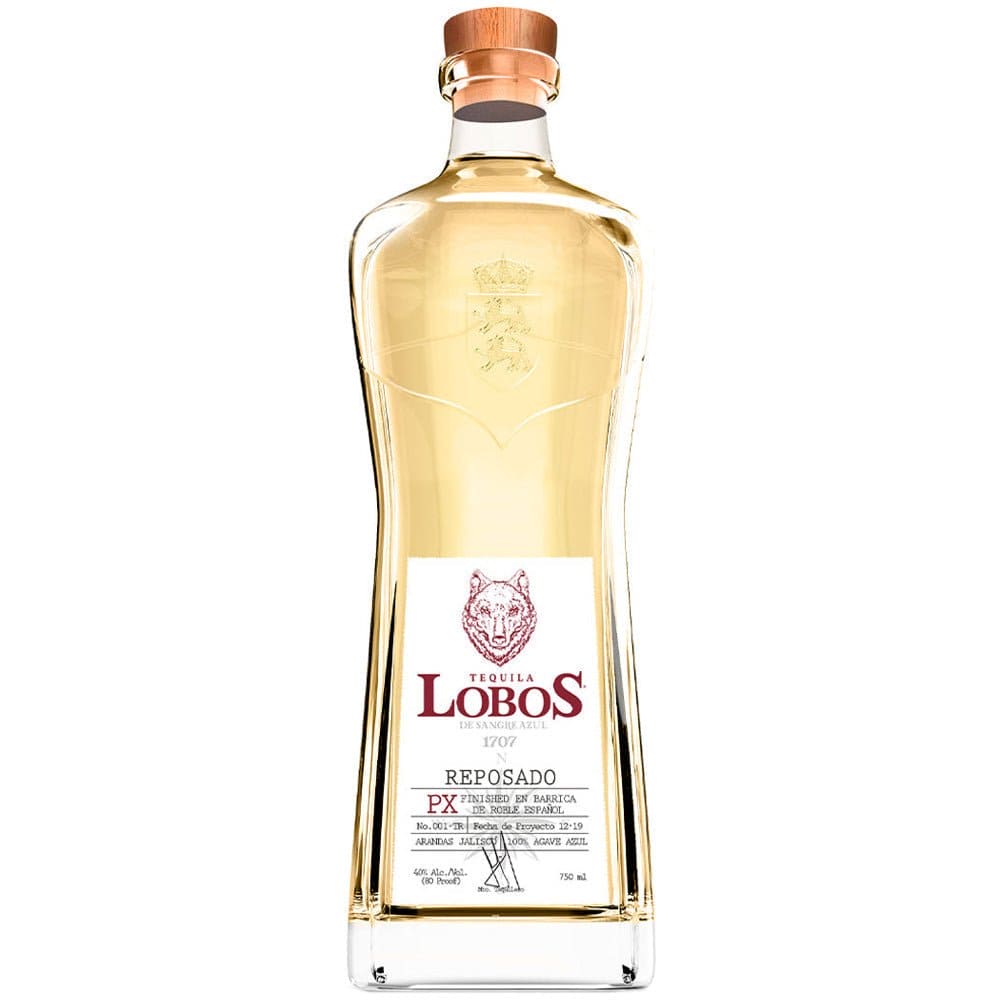
Lobos 1707 Reposado Tequila
Discover the Essence of Lobos 1707 Reposado Tequila
Crafted from 100% pure Blue Weber agave, Lobos 1707 Reposado Tequila is a testament to the artistry of tequila making. This exquisite spirit is not just a drink; it's an experience that unfolds with each sip.
Key Features:
- Premium Ingredients: Made exclusively from the finest Blue Weber agave, ensuring authenticity and exceptional quality.
- Extended Aging: Aged for over six months in American white oak barrels, imparting a rich and robust flavor profile.
- Unique Blending: Expertly blended with a touch of Lobos 1707 Extra Añejo tequila for added depth and complexity.
- Historic Finishing: Finished in historic PX wine barrels using the solera method, enhancing its character with nuanced flavors.
Tasting Notes:
Upon tasting, Lobos 1707 Reposado Tequila reveals an audacious and spicy character that captivates the palate. Its smooth finish and balanced complexity make it a perfect choice for:
- Sipping neat
- Elevating your favorite cocktails
Why Choose Lobos 1707?
With its commitment to quality and tradition, Lobos 1707 Reposado Tequila stands out as a premium choice for both tequila enthusiasts and casual drinkers alike. Experience the rich heritage and craftsmanship that goes into every bottle.

Explore a World of Spirits and Liquor through our Comprehensive FAQ Section.
Discover a World of Spirits and Liquor in our Helpful FAQ Section.
Types of Spirits
- Whiskey: Made from fermented grain mash and aged in wooden casks.
- Vodka: Typically distilled from grains or potatoes and known for its clear, neutral flavor.
- Rum: Produced from sugarcane byproducts like molasses or sugarcane juice.
- Tequila: Made from the blue agave plant, primarily in the area surrounding Tequila, Mexico.
- Gin: Distilled with botanicals, primarily juniper berries, giving it a distinctive flavor.
Production Process
- Fermentation: The process where yeast converts sugars into alcohol.
- Distillation: Separating alcohol from the fermented mixture to increase its concentration.
- Aging: Storing spirits in barrels to develop flavors over time.
Tasting and Pairing
- Tasting Notes: Learn to identify different aromas, flavors, and textures.
- Food Pairings: Discover which spirits complement various dishes, enhancing the dining experience.
Cocktails and Mixology
- Classic Cocktails: Recipes and techniques for making popular drinks like the Old Fashioned, Martini, and Mojito.
- Mixology Tips: How to balance flavors and create your own cocktail recipes.
History and Culture
Origins: The historical background of different spirits.
Cultural Significance: How spirits are enjoyed and celebrated around the world.

